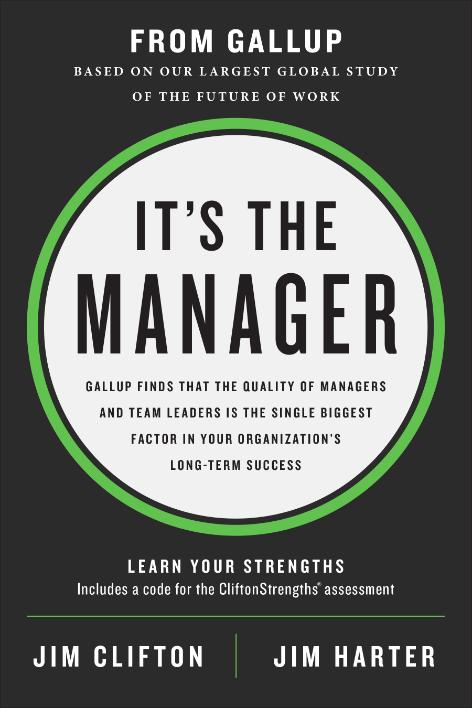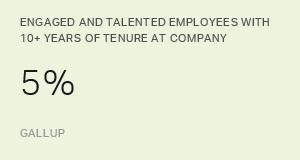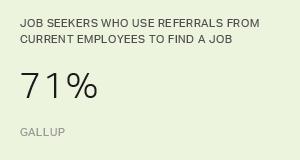Let's be honest: Losing a great employee hurts.
It costs your organization in recruitment, hiring, institutional knowledge and customer relationships.
But it also creates emotional and personal challenges within teams as well. Team morale can suffer, along with productivity and increased confusion about roles.
There may be a feeling of "Who's next?" And managers may worry that other top performers may leave for the same competitor soon after.
Team members -- and even managers -- may have a hard time imagining a future without their star player. They can only see the absence of good talent rather than the potential of the team that remains.
What's more, your managers in particular can take it personally. Like a bad breakup, they may feel rejected, regret, obsess over "what ifs" and ultimately wonder if all the energy invested in the star player was a waste.
With so much on the line -- both in terms of your external employer brand and internal morale -- organizations can't allow the quality of the employee exit experience to hang primarily or exclusively on the unpredictable emotions of a manager.
Leaders need to create a consistent "exit strategy" that provides guidelines for managers and teams when employees leave.
Before They Hit the Door
There's a lot of important work to be done when an employee resigns. Before a great employee leaves a team, there's still a chance to make something good out of a tough situation. Why try?
Employees who have a positive exit experience are 2.9 times more likely to recommend their organization to others than are those who have neutral or negative experiences.
Highly talented individuals are more likely to network and socialize with other highly talented individuals. This means that receiving referrals from your best former employees should be part of your recruitment strategy.
Organizations can't allow the quality of the employee exit experience to hang primarily or exclusively on the unpredictable emotions of a manager.
So, what makes a positive exit experience? According to Gallup's analysis, there are three key elements:
-
The employee feels heard.
Employees need to feel like someone heard their concerns and that they had a chance to express their feelings before they left. Many people talk to someone before they decide to leave an organization -- it's just not always their manager.
-
The employee is proud of their contributions.
Less than half of former employees (40%) strongly agree that they are proud of their work at their former employer. But feeling proud of your work is strongly correlated with a positive exit experience. Managers should make a special effort to recognize and celebrate an employee's work before they go.
-
The employee leaves as a brand ambassador.
Your organization should have a way to connect former employees back with the organization, where they can offer referrals and maintain a positive impression of your brand. An alumni network or similar program may be a benefit here.
In short, when losing someone special from your organization, it's important that they have a chance to communicate their feelings, hear how they made a difference, and learn how to stay connected.
As much as possible, managers should leave the door open for a future relationship.
In short, when losing someone special from your organization, it's important that they have a chance to communicate their feelings, hear how they made a difference, and learn how to stay connected.
For leaders, this means creating formal and informal opportunities to communicate (such as an exit survey and an exit conversation with a manager), encouraging celebratory exit rituals, and exploring a possible alumni network program.
After Your Star Leaves
It may not sound like good news but losing a veteran top performer can sometimes be a blessing in disguise.
It can provide teams with an opportunity to be creative, question old habits and recommit to their mission.
Here are a few ways that managers can make the most of a regrettable departure:
-
Rediscover your team's hidden strengths.
A team may already have the resources it needs to still be successful -- it may simply require some creativity and a return to basics. What talents have been lying dormant? What skills have never been shared or developed?
-
Identify career development paths that may have opened up.
Career growth is one of the top desires of today's worker. And yet many organizations don't have many opportunities to advance. Losing a star performer may provide a way to better engage and retain others.
-
See this as an opportunity for skills development and growth.
Every person has an inner drive to grow and develop. Instead of viewing a shifting workload as a burden, managers can reframe the situation as an opportunity to upskill their current team to a new level.
-
Redistribute incentives and other awards to lift up new "stars."
Managers may have lavished praise, recognition and financial rewards on their top performer. They shouldn't forget to keep this up -- celebrating one's team may matter now more than ever.
Remember: Remaining team members naturally look to their manager in difficult times. Managers may need additional support from leaders to be confident coaches.
That means being honest about the problem, focused on the team's assets and positive about the future.
After appropriate parting rituals and the best "goodbye" they can muster, it's time for managers to give their followers a future to believe in.
Who knows? A little extra attention, feedback and praise may be all some teammates need to become the next top performer.
Learn more about creating positive experiences for employees who choose to leave and those who stay:
- Download our perspective paper to learn how to make the most of an employee exit.
- Download our perspective paper on the employee experience to optimize every step from onboarding to exit.
- Explore our survey and learning platform that helps managers ask their teams the right questions and respond appropriately.




